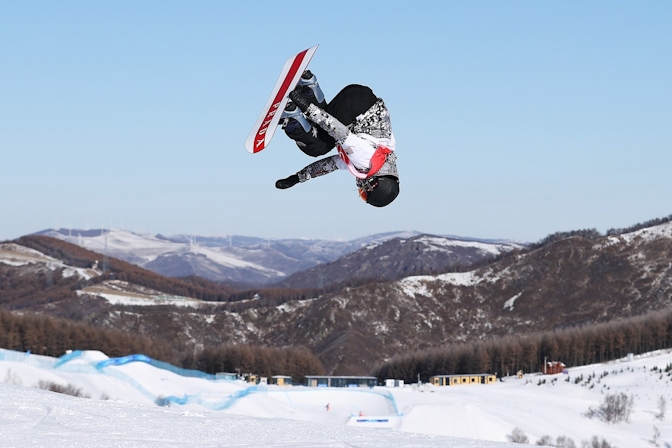
Photo by Cameron Spencer / Getty Images
Why Is Cannabis Still Banned At The Olympics?
Advocacy efforts and stakeholders are calling on WADA to reconsider its cannabis laws in the coming years.
Rules around cannabis in the Olympics are somewhat of a sticky situation. On the one hand, countries, states, and jurisdictions are legalizing the plant, but on the other, it remains strictly illegal in many parts of the world.
For example, take the MLB and NBA, two American sports leagues that have loosened their laws around marijuana in sports. Both leagues have dropped random drug tests for cannabis, and many high-profile athletes are hopping on board the marijuana legalization bandwagon with dedicated advocacy efforts.
These regulations are drastically different from others where there are still zero-tolerance policies in place, which somewhat explains the International Olympic Committee’s (IOC) current negative stance on the plant. But it’s not just the IOC calling the shots on cannabis regulations; the World Anti-Doping Agency (WADA) has created a list informally dubbed “the code,” which allows international organizations and national Olympic committees to decide which substances are banned from play.

Photo by Cameron Spencer / Getty Images
We’ve touched on “the code” before and how a substance is banned if it has the potential to enhance performance, poses a health risk to athletes, or violates the “spirit of sport.”
Although cannabis does have some benefits like decreased stress and anxiety or muscle relaxation, there’s hasn’t been enough research on how it could potentially enhance sports performance, leaving cannabis in a grey area of some sort.
But let’s take a look at rule number two, does cannabis pose a health risk to athletes? While most of us would argue no, writers at The Walrus pointed out that the plant often impairs motor function and risk assessment, which could be deadly for some sports like downhill skiing, bobsledding, or Formula 1 driving. The Walrus used Dennis Jensen’s co-written review article surrounding why cannabis does not enhance performance as an example.

Photo by Getty Images
The exercise physiologist at McGill University wrote that while cannabis “could potentially” alleviate anxiety in sports, there’s not enough information on “balance, hand-eye coordination, and reaction time.” He used the example of a boxing match, where your reaction time must be in tip-top shape, or else you’re in for some mighty consequences.
Finally, advocacy efforts to loosen marijuana regulations at the Olympics have continued. The IOC did recently increase the regulated limit for THC, which helps detect whether an athlete is currently using it or had in the past. Then in 2018, The Walrus noted that WADA removed CBD from the list of prohibited substances and is now looking into changing its laws around marijuana in the coming years due to requests from stakeholders.
Herb Recommended Products:
READ MORE




